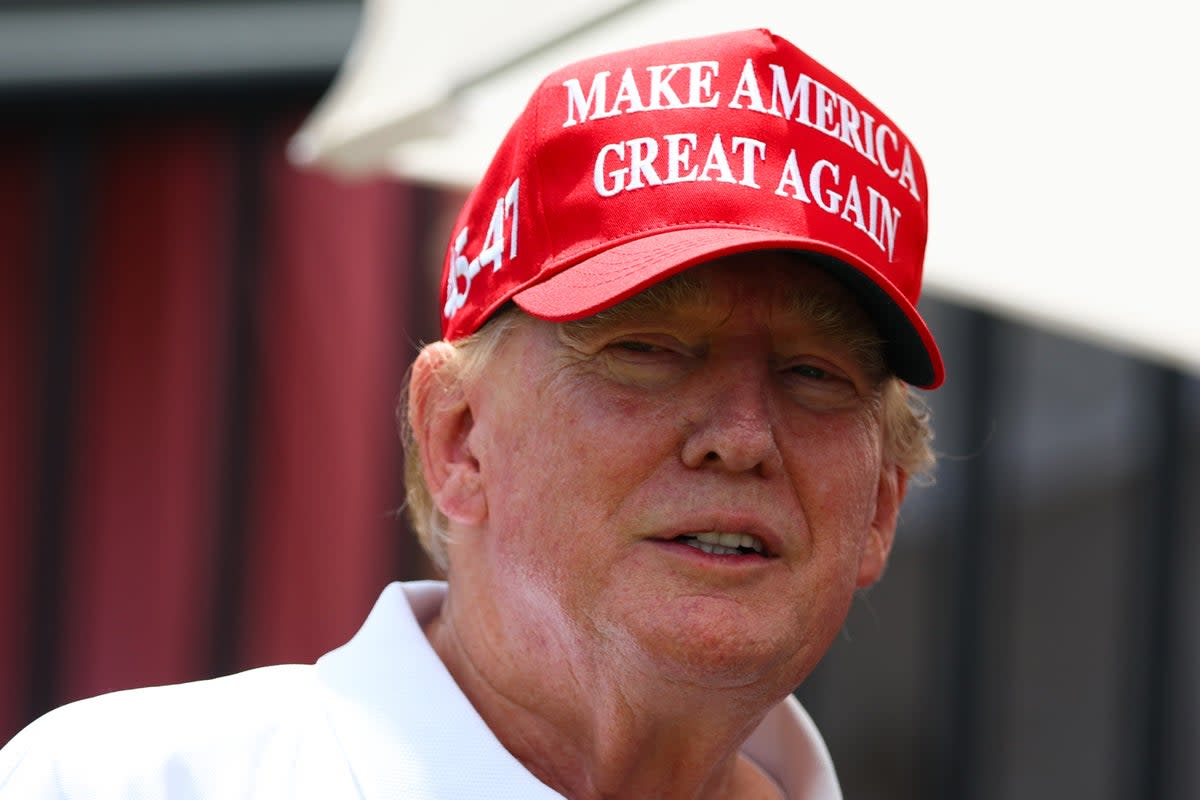Trump could lose liquor licenses at New Jersey golf clubs after his felony conviction

Donald Trump could stand to lose his licenses to sell alcohol at his three golf clubs in New Jersey after the Garden State’s attorney general’s office launched a review into his status in the wake of his guilty conviction at his New York hush money trial last month.
A spokesperson for the New Jersey Attorney General’s Division of Alcoholic Beverage Control told The Hill it is “reviewing the impact of President Trump’s conviction” on the permits he holds pertaining to Trump National Golf Club Colts Neck, Lamington Farm Club in Bedminster and Trump National Golf Club Pine Hill in the state.
All three licenses remained valid as of Monday, the spokesperson added, but declined to give further comment.
According to New Jersey law, no liquor license “shall be issued to any person under 18 years old or to any person who has been convicted of a crime involving moral turpitude”, defining “moral turpitude” as offenses “deemed serious by society”.
An applicant must also be of “reputable” character and run their business in a “reputable manner”.
While Trump himself famously does not imbibe, seeing his permits revoked would come as a humiliating blow to a businessman who prides himself on providing luxury hospitality to guests at his premises.
The former president recently held a raucous rally in Wildwood on the Jersey Shore at which he unwisely suggested he could draw a bigger crowd than local hero Bruce Springsteen and bizarrely praised “the late, great Hannibal Lecter”, a fictional serial killer and cannibal.
The fallout from his conviction on all 34 counts of falsifying business records to hide a $130,000 payment to Stormy Daniels has already seen him lose his gun license in New York.

As a convicted felon, Trump can still run to be president of the United States and have access to the country’s nuclear codes and national secrets but cannot legally bartend or fight fires in Florida, run a casino in Illinois, get a job in pest control in North Carolina or as a vet in Indiana or so much as sell a car in Mississippi.
The former commander-in-chief complained throughout his trial that the case against him was a “scam” with a “rigged” outcome plotted by his political enemies to discredit him and keep him away from the campaign trail as he pursues a return to the White House.
In claiming victimhood, Trump has frequently compared himself to the notorious Chicago gangster Al Capone, whom the politician appears to feel was unfairly persecuted by the FBI after building up a criminal empire in the 1920s through the sale of illegal alcohol once the Volstead Act came into effect.
Should the Republican end up barred from selling beer, wine and spirits, he could find himself much closer to Capone than he ever imagined – likewise reduced to battling (his own personal) Prohibition.


